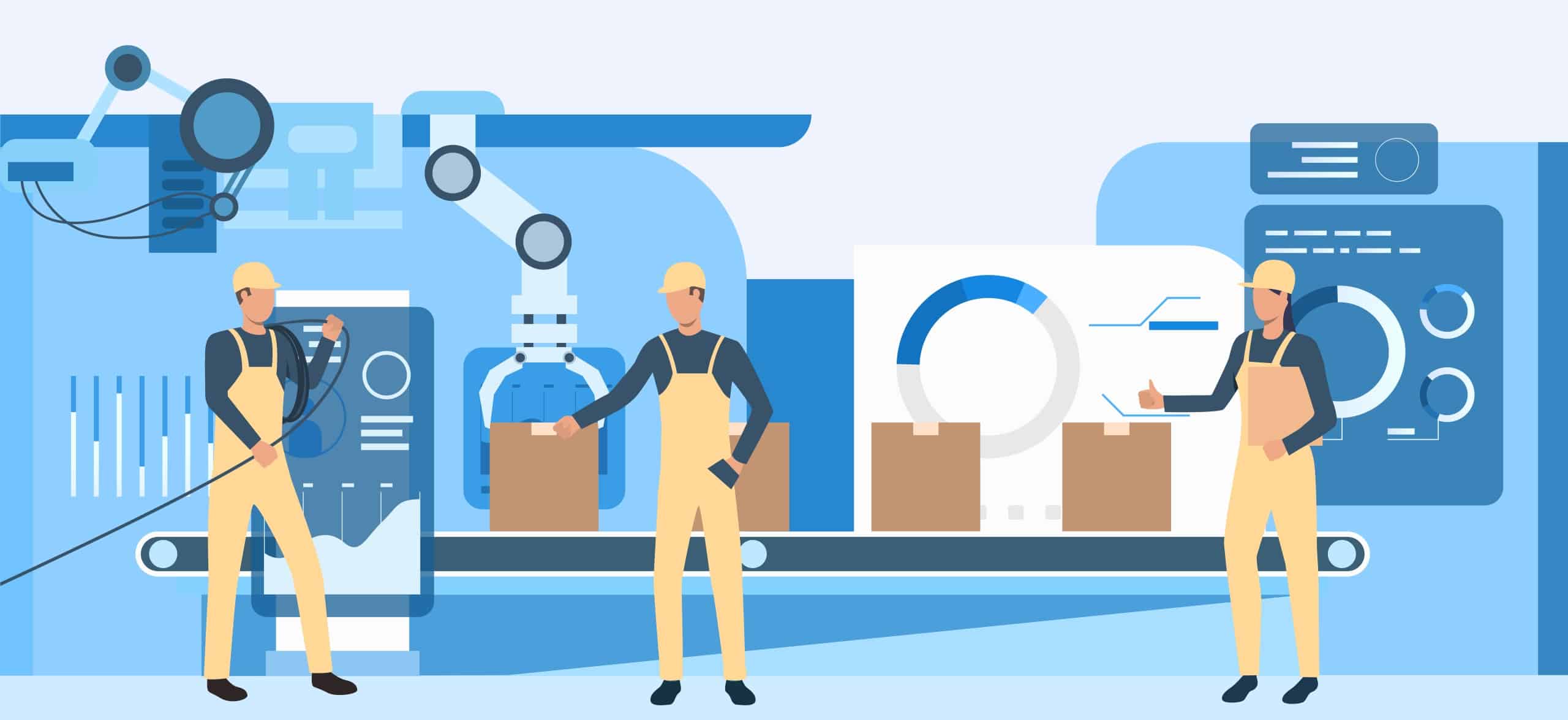Accelerating Innovation with Modular Machinery
The manufacture of wet wipes is undergoing a revolution thanks to modular technology, which provides production flexibility never seen before. Because the parts of these wet wipes machines are replaceable, producers may vary the configurations based on the product being made. For example, a business may quickly go from producing wipes for personal hygiene to wipes for disinfection with no downtime or reconfiguration. This degree of flexibility is essential in markets that are changing quickly, where new customer wants and trends often need quick adjustments to product lines. Wet wipes manufacturers may adapt quickly to these changes by using modular equipment instead of spending a lot of money and time overhauling their manufacturing lines.
The capacity of modular technology to handle a broad range of materials, formulas, and packaging designs is one of its main benefits. Modular solutions enable wet wipes manufacturers, who are exploring more and more eco-friendly and sustainable choices, to test and incorporate biodegradable ingredients into their goods without interfering with their current process. This adaptability is needed to satisfy local laws and customer preferences in addition to accepting various raw materials. Modular wet wipes machines ensure that producers can rapidly and effectively capitalize on growing trends by making it simple to customize goods for diverse markets, whether it via a unique size, texture, or liquid composition.
Reduced production downtime is one of the modular machinery’s other main advantages. When transitioning between goods, traditional manufacturing processes sometimes need extensive retooling, which may cause serious delays in bringing new products to market. Contrarily, modular systems allow for rapid changeovers, allowing manufacturers to replace parts or modify settings in a matter of hours as opposed to days. As a result, producers of wet wipes may create and test new goods much more quickly, keeping a step ahead of rivals and guaranteeing that their products are launched on schedule.
Modular equipment not only offers flexibility and speed, but also lowers costs. Wet wipes manufacturers may avoid the exorbitant costs involved with buying brand-new equipment every time they need to update or extend their product offerings since these systems can be modified and improved over time. Therefore, modular equipment allows firms to continually develop while controlling manufacturing costs. It also makes innovation more financially possible.
Reducing Time to Market with Automation
Automation is bringing new goods to market faster, which is revolutionizing the wet wipes manufacturing business. Every stage of the wet wipes manufacturing process, including folding, cutting, soaking, packing, and sealing the wipes, is streamlined by automated equipment. By minimizing manual involvement, this automation lowers the possibility of human mistakes while guaranteeing speedier and more consistent production. Faster product releases in fiercely competitive marketplaces are made possible by manufacturers’ ability to fulfill deadlines and quickly adapt to new trends via high-speed manufacturing lines.
The potential of automation to boost productivity without sacrificing quality is one of its key advantages. The precise operation of automated wet wipes machines guarantees that every product satisfies precise requirements. This is particularly crucial for creating several wet wipe variants, including those with distinctive textures, liquid compositions, or sizes. Wet wipes manufacturers can reliably create high-quality goods without compromising speed by automating these procedures, enabling brands to launch new product lines with assurance about their dependability and performance.
For production scalability to be optimized, automation is also essential. Automated methods facilitate the process of ramping up manufacturing to meet growing demand after a product is produced and ready for launch. Wet wipes manufacturers can swiftly increase production using automated equipment without sacrificing quality or efficiency, whether it’s for full-scale manufacturing or a small test run. Because it guarantees they can manufacture enough inventory to fulfill customer demand from day one, this scalability is especially useful for businesses entering new markets, as it lowers the danger of stock shortages or delays.
Automation helps save costs in addition to speed and scalability. The continuous running of automated equipment with little oversight lowers operating expenses and eliminates the need for a big worker staff. Moreover, wet wipes manufacturers may reduce waste and costly production delays by having fewer mistakes and downtime. Wet wipes manufacturers may more quickly reach the market and become more cost-effective by investing in automation, which helps them compete in price-sensitive and fast-paced markets.
Real-Time Customization for Market-Specific Demands
Real-time product customization to satisfy unique market needs is one of the most significant advancements in the wet wipes manufacturing industry. Wet wipes manufacturers may customize goods like wet wipes to meet the needs and tastes of various markets or clientele groups by using sophisticated technology. These methods enable instantaneous adjustments to the wipes’ size, texture, or composition, allowing producers to quickly generate customized items. In a global economy where customer wants vary greatly between markets, this real-time personalization is essential.
Customization for individual markets encompasses not just product attributes but also packaging, scents, and even the kind of liquid solution used in the wipes. Customers in one area could value eco-friendly packaging, but another would place more value on formulae that are hypoallergenic or have antibacterial qualities. Modern wet wipes machines can change these settings in the middle of production, which lets businesses accommodate a range of customer preferences without setting up different manufacturing lines. This feature not only makes a brand more appealing in local markets, but it also makes it easier for them to release locally customized items more swiftly.
Real-time modification provides versatility that includes adhering to local laws. Countries often have unique regulations on ingredients, labeling, and packaging, which may make manufacturing more difficult for firms attempting to penetrate many markets at once. Wet wipes manufacturers may make quick alterations to guarantee that goods meet the rules of each market by using machines for customizable wet wipes. With the capacity to quickly adjust production settings, businesses may enter new markets more quickly and with less chance of delays brought on by regulatory obstacles. This helps guarantee that compliance difficulties don’t hold down the launch process.
Furthermore, real-time customization improves the capacity for innovation and experimentation. Without stopping the whole line, wet wipes manufacturers may test several iterations of their products while they are in production. Before scaling up production worldwide, a corporation may, for instance, introduce a test product in a certain area, get feedback, and swiftly modify the product depending on customer preferences. By responding quickly to consumer input, firms can maintain their competitive edge and quickly refine their goods to match particular market needs, all while cutting manufacturing costs and time to market.
Enhancing Product Testing and Prototyping
Before beginning full-scale manufacturing, product testing and prototyping are crucial stages in the development of new wet wipes goods, as they guarantee that every variant satisfies quality, safety, and performance criteria. This procedure has been greatly enhanced by advanced wet wipes machines, which incorporate testing and prototyping capabilities right into the manufacturing line. As a result, wet wipes manufacturers may develop and test prototypes quickly and without having to stop production or utilize other facilities. Businesses may expedite the launch of new goods and shorten development cycles by optimizing testing and prototyping.
These days, wet wipes manufacturers may experiment with different materials, formulae, and designs quickly because of these advanced equipment. For instance, they may test several liquid formulas right on the manufacturing line, including moisturizers, disinfectants, and eco-friendly treatments. Because of this flexibility, companies may swiftly refine their goods by making the appropriate changes in response to customer input or performance. Because of this, creating fresh prototypes requires a lot less time and money, which enables wet wipes manufacturers to test many iterations of a product at once and decide which is ideal for mass production.
Additionally, every prototype is assessed for consistency, quality, and safety thanks to the accuracy of the automated testing apparatus. Real-time measurements of variables including liquid absorption, durability, and the potency of the active substances may be made using automated devices, which provide the manufacturing team with instant feedback. Wet wipes manufacturers can detect any problems early in the development process thanks to this data-driven strategy, which lowers the possibility of expensive mistakes or delays during the full-scale production stage. Businesses may reliably offer items that fulfill strict quality requirements when they have improved testing capabilities.
Effective prototyping and testing techniques can provide new avenues for innovation. Wet wipes manufacturers can immediately evaluate the effect of introducing novel materials, such as biodegradable fibers or innovative packaging solutions, on the performance of their products. In today’s fast-paced marketplaces, where wet wipes manufacturers must constantly innovate to remain competitive, this capacity for quick prototyping is vital. Wet wipes machines help businesses push the frontiers of product development while upholding strict quality standards by improving the product testing and prototyping process. This eventually speeds up the time to market for new and better items.
Scaling Production Seamlessly
To satisfy the increasing market demand for wet wipes while preserving product quality, wet wipes manufacturers must effectively scale their production. Because scalable wet wipes machines are designed with scalability in mind, businesses can simply increase output without having to make significant equipment expenditures or reconfigure their whole setup. These wet wipes machines provide the flexibility and ability to modify production levels effortlessly, enabling producers to quickly and efficiently fulfill customer demand whether they are launching a new product or entering new markets.
The modular architecture of contemporary wet wipes machines is one of the essential components allowing smooth scaling. By adding new modules or changing existing ones, these wet wipes machines enable wet wipes manufacturers to enhance production capacity without interfering with the ongoing process. To manage increased production while keeping the same degree of efficiency and quality, the system may be expanded to include, for instance, more folding units or packing lines. Because of its modularity, wet wipes manufacturers may grow their operations gradually without incurring significant upfront expenses and with the least amount of downtime possible.
Furthermore, automated methods are essential to maintaining the consistency and efficiency of scaled-up manufacturing. It might be difficult to maintain the same level of product quality when manufacturing quantities rise. Automation, on the other hand, enables wet wipes manufacturers to depend on precise control systems that continuously monitor and modify the wet wipes manufacturing process, guaranteeing that each product fulfills exacting quality requirements even at increased production volumes. To prevent bottlenecks, save waste, and preserve the efficiency needed to meet rising production needs, automated quality checks and modifications are helpful.
Finally, sophisticated wet wipes machines can grow across several product lines at the same time. Wet wipes manufacturers may run many iterations of their goods on the same manufacturing line, allowing for little downtime while switching between various items. Wet wipes manufacturers may take advantage of a variety of market possibilities thanks to this multi-product flexibility without having to build different manufacturing facilities for each product. These wet wipes machines provide smooth scaling, which helps businesses expand while also helping brands react swiftly to changing consumer demands and new trends and maintain their competitiveness in an ever-evolving market.
Supporting Sustainable Innovation
Wet wipes manufacturers are putting more of an emphasis on sustainable innovation to match customer expectations as the market for eco-friendly goods expands. These days, wet wipes machines are a major help to these initiatives, allowing wet wipes manufacturers to use eco-friendly procedures without sacrificing productivity or product quality. Wet wipes machines of today are made to assist companies lessen their environmental impact while staying competitive in a market where sustainability is increasingly being emphasized via the use of biodegradable materials and energy-efficient designs.
The ease with which biodegradable and compostable materials may be handled by wet wipes machines is one significant advancement. Historically, the transition to these materials presented difficulties because of how they differed from traditional fibers. Modern machinery, on the other hand, is capable of processing these sustainable resources without sacrificing output quality or speed. Because of this flexibility, wet wipes manufacturers can fulfill customer demand for more environmentally friendly options while producing eco-friendly wet wipes that are just as efficient as conventional manufacturing lines.
Modern wet wipes machines are built with energy-efficient features that lower total resource use in addition to material versatility. Energy-saving technology, such as automated systems that optimize power use and minimize waste during manufacturing, are installed in these machines. Wet wipes manufacturers may minimize energy usage and, in the process, their carbon footprint and operating expenses, thus enabling sustainable manufacturing to be profitable. It is now simpler for businesses to adopt greener production techniques without compromising revenue because of this mix of sustainability and affordability.
Lastly, by reducing waste during manufacturing, wet wipes machines can promote sustainable innovation. From cutting to packing, automated methods make sure that every stage of the process is optimized to minimize material waste. To guarantee that there are no extra materials, for example, accurate cutting and folding mechanisms and automated liquid application systems employ only the correct quantity of lotion required for each wipe. These wet wipes machines assist wet wipes manufacturers in developing a more sustainable production cycle, enabling them to provide customers with environmentally friendly goods while also aiding in environmental preservation. They do this by cutting down on waste creation, both material and energy-related.







